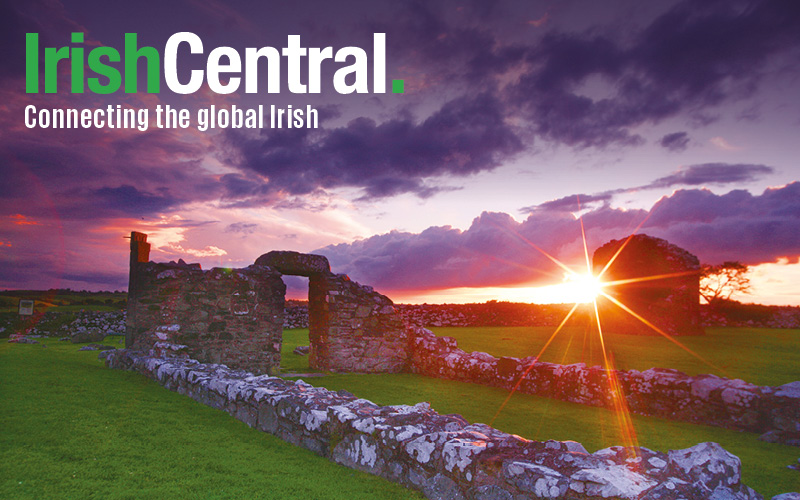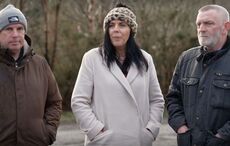Celebrated Irish folk singer and New York resident Susan McKeown is spearheading a Saturday, September 22 protest outside the Irish Consulate on Park Avenue to stop the new M3 motorway development from passing near to the Hill of Tara, the ancient seat of the high kings of Ireland located in Co. Meath.
Also scheduled to speak at the planned protest is award winning Irish poet and professor of the humanities at Princeton University, Paul Muldoon.
The Tara protest in New York will be held to coincide with another gathering taking place at 3 pm on the same day in Dublin, when the greatest assembly of the Irish harpers in modern times will gather in front the Dail (Irish Parliament).
Aditionally, McKeown has planned a poster and flyer campaign calling for a halt to the motorway which will be distributed to all of the Irish bars in the city by the weekend.
McKeown is aware of the competing interests and arguments on both sides of the motorway issue, but she feels that Ireland's heritage is worth more than all the traffic congestion the planned motorway hopes to relieve.
"I've known about this motorway development for some time. Then I read that on the very day they broke ground on the project they discovered a massive new archeological site at Lismullan and had to stop," McKeown told the Irish Voice.
"That was just in the first 24 hours. This motorway project is an *850 million project - clearly it's worth a lot of money to a lot of people. But already we're receiving reports that the land near Tara has been zoned for commercial use. That's very disturbing to me."
For McKeown, the desire to preserve Tara isn't just a cosmetic enterprise to protect a pristine landscape. It is deeply connected to her sense of the history and heritage of the island.
"For me as a musician and Irish singer I have always felt connected to the past because of what we do. In the bardic tradition in Ireland bards were the keepers of the culture, the carriers of the tales and histories of the generations. Tara for me has always been the root of the bardic tradition. The fact that this is happening is horrific to me."
Some critics scoff at the growing protests, calling them nothing more than the work of tree-huggers and disgruntled hippies. McKeown understands that take, but feels it is much too superficial a response for such an urgent question.
"I think if people take a little time and look into the issue on the Internet they'll see that eminent archeologists and environmentalists are concerned about what the motorway development will do to the whole Tara valley," she says.
"The most recent report on August 21 in The Irish Times by Dr. Ron Hicks from Indiana State University contends that the Lismullen site discovered the day after they broke ground is twice as large as any other monument of its kind ever discovered in Ireland. It's not just the so-called tree huggers who are concerned about this."
McKeown is aware of the merits of both sides of the debate and frames a nuanced response to the naysayers.
"I am someone who believes in the positive aspects of technology. But it's all about balance. There's no question that there are people who want to get to Dublin faster, or that the traffic can be dreadful problem in Ireland - and I completely understand that.
"But there is also an unused rail line within this site that could be developed to provide a fast train from Navan. There are alternatives available and there is no reason that those could be investigated."
McKeown is expecting a large turn out at the Irish Consulate protest on Park Avenue on the 22nd. Already she has secured the participation of some major names that will be announced closer to the date.
"I know that when people take a flyer and check out the websites and get a little bit more familiar with the issue they feel strongly about it. They feel there is something wrong with the development," she says.
A website linked to the campaign to save Tara quotes a recent statement by the Irish Nobel laureate, Seamus Heaney: "It could be said that the campaign to Save Tara is putting its case in the name of dead generations: for the past two millennia those generations regarded Tara as a place invested with sacred as opposed to secular value. Protest against the loss of this value remains an imperative."
Other well-known names attached to the ever-widening campaign include Irish star Stuart Townsend, who told the campaign: "For centuries Tara was the gathering place for thousands of harpers, poets and dancers. The roots of the Irish bardic tradition are there. Barely anyone has tried to stop what surely will be one of the greatest archeological travesties of our time, second only to the ancient artifacts stolen in Iraq.
"But they had to start a war to get away with that one. We here in Ireland seem to just be happy to let road builders dig up and tear through the most ancient and sacred place that exists in our land."
The Save Tara protest will occur at 11 a.m. outside the Irish Consulate, 345 Park Avenue between 51st and 52nd Streets in New York.




Comments